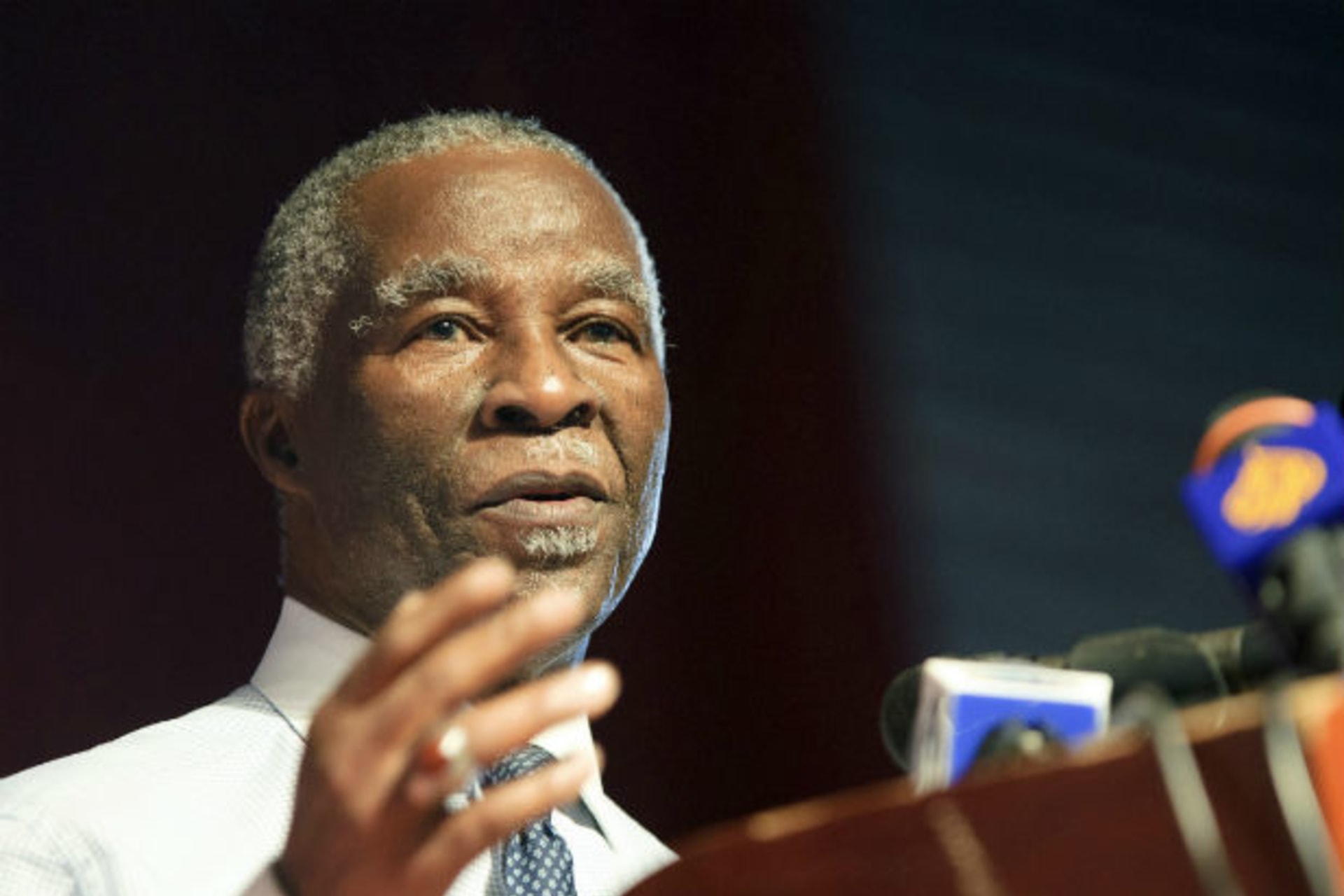Thabo Mbeki on Sovereignty and Democracy in Africa

By experts and staff
- Published
By
- John CampbellRalph Bunche Senior Fellow for Africa Policy Studies
Former South African president Thabo Mbeki, in a February 16 lecture (PDF), reflects on the threat of Western re-colonization of Africa in the context of enduring racism as a way to encourage greater African unity.
The speech is vintage Mbeki--thoughtful, sometimes outrageous (from an American perspective), and with extensive and appropriate quotations from Chinua Achebe and W.B. Yeats. It also provides insight into how this statesman sees South Africa’s role in Africa and the world. It is tightly argued, requires close reading, and does not lend itself to bumper-sticker summaries, including this one.
Mbeki focuses on Libya while acknowledging that intervention in Ivory Coast also carries many of the same lessons. He recalls the adoption by the African Union Peace and Security Council of a roadmap for the resolution of the Libyan conflict, which secured Qaddafi’s agreement. The AU then forwarded its decision to the UN and the Arab league.
However, the UN Security Council ignored the African Union and took as the justification for its actions the positions taken by the Arab League. It adopted Resolution 1973, which provided the justification for NATO “to intervene in Libya to impose a violent resolution to this conflict, centered on regime change—which was not the intention of Resolution 1973.”
Mbeki charges President Obama, Prime Minister Cameron, President Sarkozy, and the UN with imposing their own solution on an African state. (He denies that Qaddafi was intent on making war on his own people.) It particularly sticks in his craw that the UN gave greater weight to the Arab League than to the African Union; in effect, he accuses the UN of detaching Libya from Africa.
However, he blames the shortcomings of African governments for this state of affairs: “the Libyan tragedy and debacle occurred because things fell apart…we had learnt the ways of cheating and allowed those who have the means to abuse state power to control us, our institutions and our minds.”
He calls for African states to reinforce democracy and respect for human rights, develop an African capacity to resolve conflict in the context of a commitment to find African solutions to African problems, and to strengthen the AU “to give practical meaning to the objective to achieve genuine African unity and solidarity…” Otherwise, he argues, Ivory Coast and Libya show that the West remains determined “to attach Africa to themselves as their appendage, at all costs…”
The pervasiveness of racism in the West’s relationship with Africa is a theme throughout his speech. Near the conclusion he cites WEB du Bois’s call for black solidarity and refers to Pew data that the median wealth of white American households is twenty times that of blacks and eighteen times that of Hispanics as evidence of the persistence of “the problem of the color line.” Nowhere, however, does he acknowledge President Obama’s African-American origins.
Mbeki has been out of power for a long time and is assuming the role of an elder statesman. (He has been outspoken on African homophobia, for example.) Hence, his speech should not be seen as a guide to the foreign policy of South Africa’s Jacob Zuma government. However, it does provide a window into the thinking of South African intellectuals who are wrestling with South Africa’s role in the world.